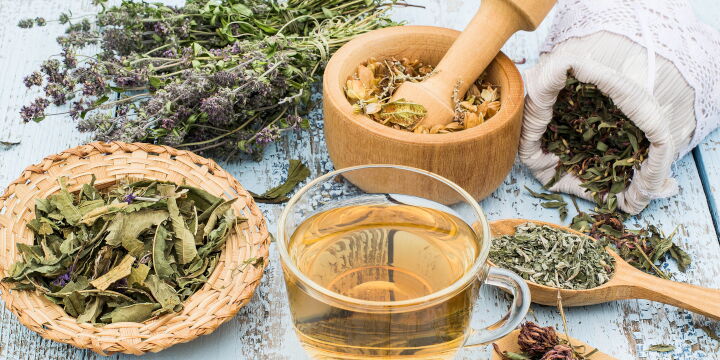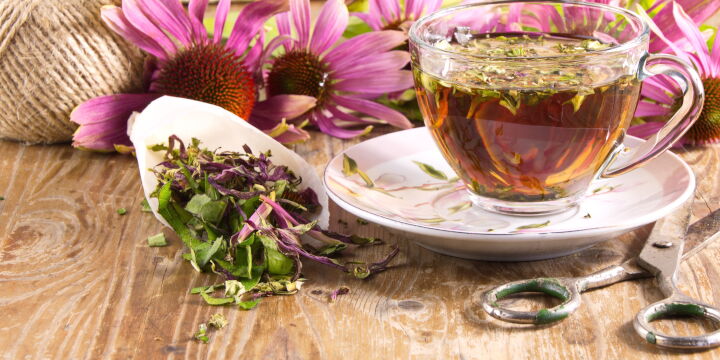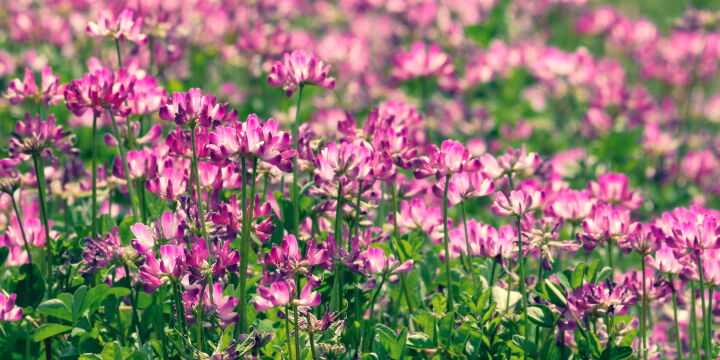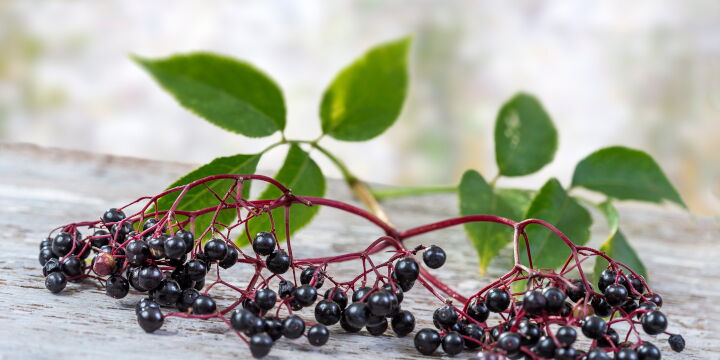Here we go again; autumn is back!
We are already in the middle of autumn and here they are returning too: sore throat, cold, perennial fatigue, hypersensitivity; the typical diseases of this season often accompanied by gastrointestinal forms that attack the stomach and intestines and turn into diarrhea, vomiting, abdominal cramps and fatigue.
Many of these flu states affect the upper respiratory tract which, in those most at risk such as children, the elderly and immunosuppressed people, can develop into more serious situations.

Herbs that regenerate the immune system: what are they?
Echinacea: the herbaceous plant known for its anti-infective and immunostimulating properties; let's get to know her better!
Native to North America and used by the shamans of the tribes as a magic herb for the treatment of burns and wounds, snake bites, fever and sore throat; Echinacea now finds a role of renewed consideration by the medical community.
Perennial plant that rests in winter and starts its cycle again in spring; it is the root, with the precious content of its phytocomplex and bioactive elements, the richest part of immunostimulating principles including polysaccharides and flavonoids such as caftaric and chicoric acids.


Did you know that..
It intervenes, in fact, on the metabolism of sodium and potassium and is able to lower blood pressure.
Useful in case of angina pectoris; perfectly supports the functions of the heart and those of the circulatory system as a whole.
Elderberry: the natural anti-inflammatory that treats coughs and relieves
From popular medicine, especially in the Germanic tradition, Elderberry boasts an interesting antibacterial and antiviral activity, but also "antifebrile" especially against influenza viruses that affect the airways, but finds application, based on its parts used, also to diuretic and detoxifying, antirheumatic , anti-inflammatory and also against sunburn, hemorrhoids and constipation, which boasts 781 entries of scientific papers on its effectiveness and its many beneficial properties.

From a distillate of its flowers, flavored with anise and fennel, a well-known digestive liqueur is obtained and already ppocrates recommended elderberry infusions to his patients to treat some specific ailments.
It is from its flowers and berries that natural remedies for seasonal ills are obtained; all preparations that have been officially recognized as active and effective (Ministerial Decree Health 03/27/14) in "improving the fluidity of bronchial secretions, the functionality of the upper respiratory tract, supporting the body's natural defenses"
Rosehip: the natural source of vitamin C
Nature brings us the most valid aid for children suffering from tonsillitis, pharyngitis, bronchitis, colds and coughs: rose hips, the natural source of vitamin C, whose berries contain up to 50-100 more. compared to that contained in oranges and lemons.
It has anti-inflammatory properties, especially in case of problems in the respiratory system and acts as an anti-inflammatory of the nasal mucous membranes and eyes in case of conjunctivitis
Did you know that..
Its berries also possess an astringent action due to the presence of tannins and are useful for counteracting and treating intestinal problems?!
Autumn-winter and the lack of sunlight: let's fill up on vitamin D and zinc!
Speaking of strengthening the immune system, one cannot fail to mention vitamin D which is not only essential for the normal physiology of our bones but is also considered the true queen of the immune system.

coordinates the activity of all its cells, both those involved in innate immunity and those of adaptive immunity
The scientific literature has confirmed, through a large amount of studies, the ability of vitamin D to act on immune-competent cells by activating them and playing a leading role and coordinator for our immune defenses.
In order to naturally increase the reactivity of the immune system, numerous studies, conducted in the last two decades, have shown that the immune system needs zinc for its maximum physiological efficiency and that an insufficient nutritional intake of this element leads to a lower production of antibodies.
Furthermore, research has shown that children who regularly take zinc get colds less frequently than those who do not take it and show that they can reduce symptoms and the time to resolve the disease.
Scientific literature:
Karsch-Völk M, Barrett B, Kiefer D, Bauer R, Ardjomand-Woelkart K, Linde K. Echinacea for preventing and treating the common cold. Cochrane Database Syst Rev. 2014 Feb 20; 2 (2): CD000530. doi: 10.1002 / 14651858.CD000530.pub3. PMID: 24554461; PMCID: PMC4068831.
Block KI, Mead MN. Immune system effects of echinacea, ginseng, and astragalus: a review. Integr Cancer Ther. 2003 Sep; 2 (3): 247-67. doi: 10.1177 / 1534735403256419. PMID: 15035888.
Karsch-Völk M, Barrett B, Linde K. Echinacea for preventing and treating the common cold. JAMA. 2015 Feb 10; 313 (6): 618-9. doi: 10.1001 / jama.2014.17145. PMID: 25668266; PMCID: PMC4367446.
Shah SA, Sander S, White CM, Rinaldi M, Coleman CI. Evaluation of echinacea for the prevention and treatment of the common cold: a meta-analysis. Lancet Infect Dis. 2007 Jul; 7 (7): 473-80. doi: 10.1016 / S1473-3099 (07) 70160-3. Erratum in: Lancet Infect Dis. 2007 Sep; 7 (9): 580. PMID: 17597571; PMCID: PMC7106401.
Fu J, Wang Z, Huang L, Zheng S, Wang D, Chen S, Zhang H, Yang S. Review of the botanical characteristics, phytochemistry, and pharmacology of Astragalus membranaceus (Huangqi). Phytother Res. 2014 Sep; 28 (9): 1275-83. doi: 10.1002 / ptr. 5188. Epub 2014 Aug 2. PMID: 25087616.
Liu P, Zhao H, Luo Y. Anti-Aging Implications of Astragalus Membranaceus (Huangqi): A Well-Known Chinese Tonic. Aging Dis. 2017 Dec 1; 8 (6): 868-886. doi: 10.14336 / AD.2017.0816. PMID: 29344421; PMCID: PMC5758356.
Qi Y, Gao F, Hou L, Wan C. Anti-Inflammatory and Immunostimulatory Activities of Astragalosides. Am J Chin Med. 2017; 45 (6): 1157-1167. doi: 10.1142 / S0192415X1750063X. Epub 2017 Aug 22. PMID: 28830214.
Zheng Y, Ren W, Zhang L, Zhang Y, Liu D, Liu Y. A Review of the Pharmacological Action of Astragalus Polysaccharide. Front Pharmacol. 2020 Mar 24; 11: 349. doi: 10.3389 / fphar.2020.00349. PMID: 32265719; PMCID: PMC7105737.
Hawkins J, Baker C, Cherry L, Dunne E. Black elderberry (Sambucus nigra) supplementation effectively treats upper respiratory symptoms: A meta-analysis of randomized, controlled clinical trials. Complement Ther Med. 2019 Feb; 42: 361-365. doi: 10.1016 / j.ctim.2018.12.004. Epub 2018 Dec 18. PMID: 30670267.
Kinoshita E, Hayashi K, Katayama H, Hayashi T, Obata A. Anti-influenza virus effects of elderberry juice and its fractions. Biosci Biotechnol Biochem. 2012; 76 (9): 1633-8. doi: 10.1271 / bbb.120112. Epub 2012 Sep 7. PMID: 22972323.
Chen C, Zuckerman DM, Brantley S, Sharpe M, Childress K, Hoiczyk E, Pendleton AR. Sambucus nigra extracts inhibit infectious bronchitis virus at an early point during replication. BMC Vet Res. 2014 Jan 16; 10: 24. doi: 10.1186 / 1746-6148-10-24. PMID: 24433341; PMCID: PMC3899428.
Chrubasik C, Roufogalis BD, Müller-Ladner U, Chrubasik S. A systematic review on the Rosa canina effect and efficacy profiles. Phytother Res. 2008 Jun; 22 (6): 725-33. doi: 10.1002 / ptr. 2400. PMID: 18384191.
Azrielant S, Shoenfeld Y. Vitamin D and the Immune System. Isr Med Assoc J. 2017 Aug; 19 (8): 510-511. PMID: 28825771
Aranow C. Vitamin D and the immune system. J Investig Med. 2011 Aug; 59 (6): 881-6. doi: 10.2310 / JIM.0b013e31821b8755
Cesareo R et al. Italian Association of Clinical Endocrinologists (AME) and Italian Chapter of the American Association of Clinical Endocrinologists (AACE) Position Statement: Clinical Management of Vitamin D Deficiency in Adults. Nutrients. 2018 Apr 27; 10 (5). pii: E546. doi: 10.3390 / nu10050546
Hojyo S, Fukada T. Roles of Zinc Signaling in the Immune System. J Immunol Res. 2016; 2016: 6762343. doi: 10.1155 / 2016/6762343. Epub 2016 Oct 31. PMID: 27872866; PMCID: PMC5107842.
Rink L, Gabriel P. Zinc and the immune system. Proc Nutr Soc. 2000 Nov; 59 (4): 541-52. doi: 10.1017 / s0029665100000781. PMID: 11115789.
